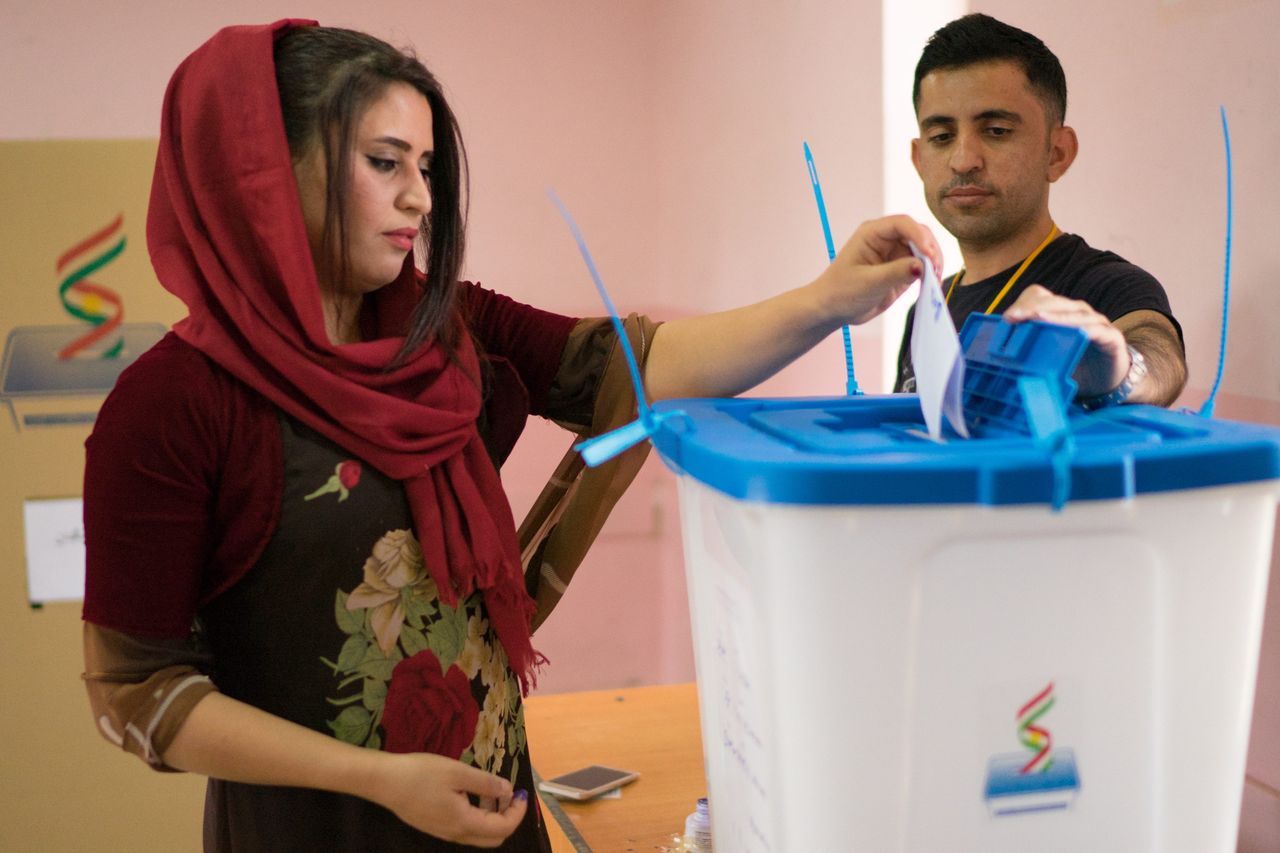
A month has gone since the parliamentary elections and still there are no final results.
A huge cloud of dense, black smoke appeared above the storage in Baghdad, where the ballot boxes with the parliamentary election votes were kept. The firefighters were trying to put out the fire. 60% of 2 million votes from Baghdad were kept in that storage but it is not known what damage the fire caused and how did it breake out. The elections were held on May 12.
Prime Minister, Haider al-Abadi, considered this situation as a “conspiracy against the nation and its democracy”. – We will take all the necessary measures and strike hard with an iron fist all who undermine the security of the state and its citizens – said al-Abadi.
A dispute over the results
Prime Minister forbade the members of the Iraqi Independent High Electoral Commission (IHEC) to leave the country due to – as he described – “blatant irregularities” during the last parliamentary election. Al-Abadi suspects some of them may be subjected to criminal trials in connection with the improper inspection of machines for electronic counting of votes. They were used in Iraq for the first time. The Commission has cancelled votes from 1021 out of 53,000 ballot boxes. Abadi accused the IHEC for making most of the mistakes.
The Kurdish parties, struggling for support in the northern part of the country, also accused each other of electoral fraud with the use of machines for electronic counting of votes. Due to that mess, the Parliament ordered to recalculate all the votes manually, not electronically. Moreover, the entire nine-member team of the IHEC was fired and its members were replaced.
A few hours later, there were two explosions in Baghdad. The mosque in As-Sadr City, a district of Baghdad, were the Shiites mainly live, was also partially damaged. 18 people were killed and 90 were injured. The investigation is underway, and it is still not known, what caused the explosion. The most influential person in this part of Baghdad is Muqtada al-Sadr, the leader of the Sadrist Movement, who had the best result in the elections. After the tragedy, al-Sadr called for “patience and self-control”
Four days later, the fire broke out in the storage where the ballot boxes were kept. Most probably, the manual counting will not be possible, because unspecified number of ballot forms has been destroyed.
A doubtful success
165 deputies are needed to form a majority in parliament. None of the parties or groupings were able to achieve it. Therefore, when the election results will finally be established, the process of building the ruling coalition will probably take months.
The elections were won by the Sadrist Movement – a coalition of the controversial group of Shiite cleric Muqtada al-Sadr and the communists. They gained 54 seats. Their victory was based on an effective campaign and anti-corruption slogans. According to the corruption level ranking estimated by the Transparency International, Iraq was ranked on the 169th place among 180 countries in the world.
The second place was taken by the Fatah Alliance, which received 47 out of 328 seats. Its leader, Hadir Al-Amiri. was previously the commander of one of the Shiite militias belonging to People’s Mobilization Forces (Al-Hashd Al-Sha’abi). About 500 ex-soldiers changed military uniforms into suits and started to fight for seats in the parliament. Amiri is the chairman of the Fatah Alliance.
The Al-Nasr Alliance, headed by Abadi, took only the third place. It gained 42 seats in the parliament. The Al-Nasr Alliance, the Prime Minister Party, was the favourite to win the elections.
Almost 7,000. candidates representing 87 parties applied for 329 seats in the Iraqi parliament. 45% of Iraqis (more than 10 million) took part in the elections. It has been the lowest voter turnout since 2005. Since 2003, no elections have had a voter turnout lower than 60%. Despite serious fears and threats from ISIS, the voting itself proceeded without serious incidents. Strengthened security measures were taken.
These were the first parliamentary elections since defeating ISIS. The previous ones took place on April 30, 2014.
Photo: A woman taking part in the referendum on independence that took place on 25 September in northern Iraq.























